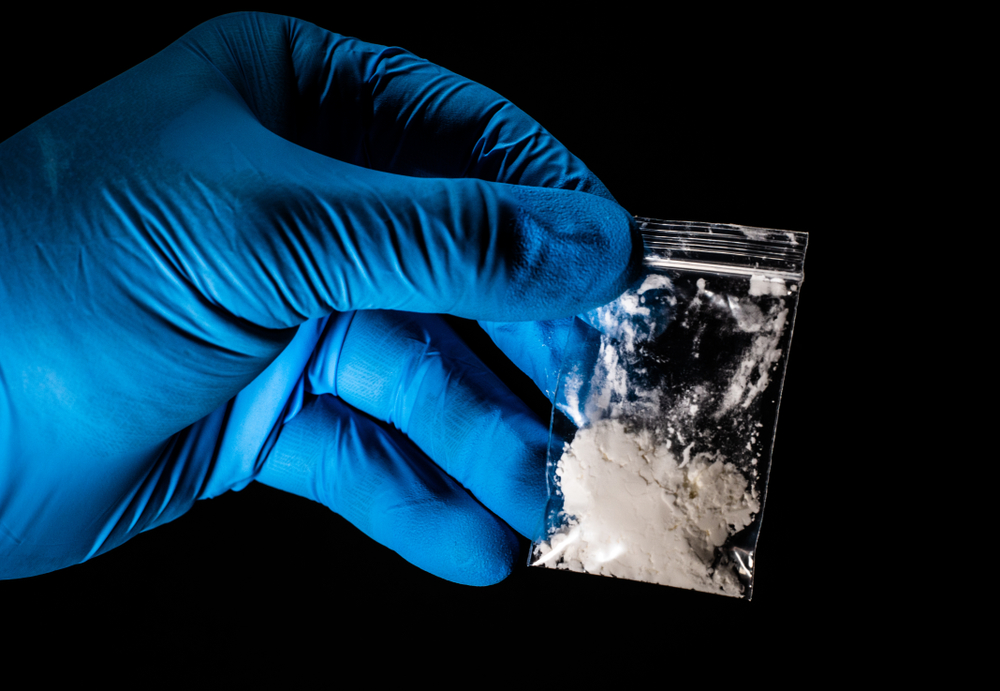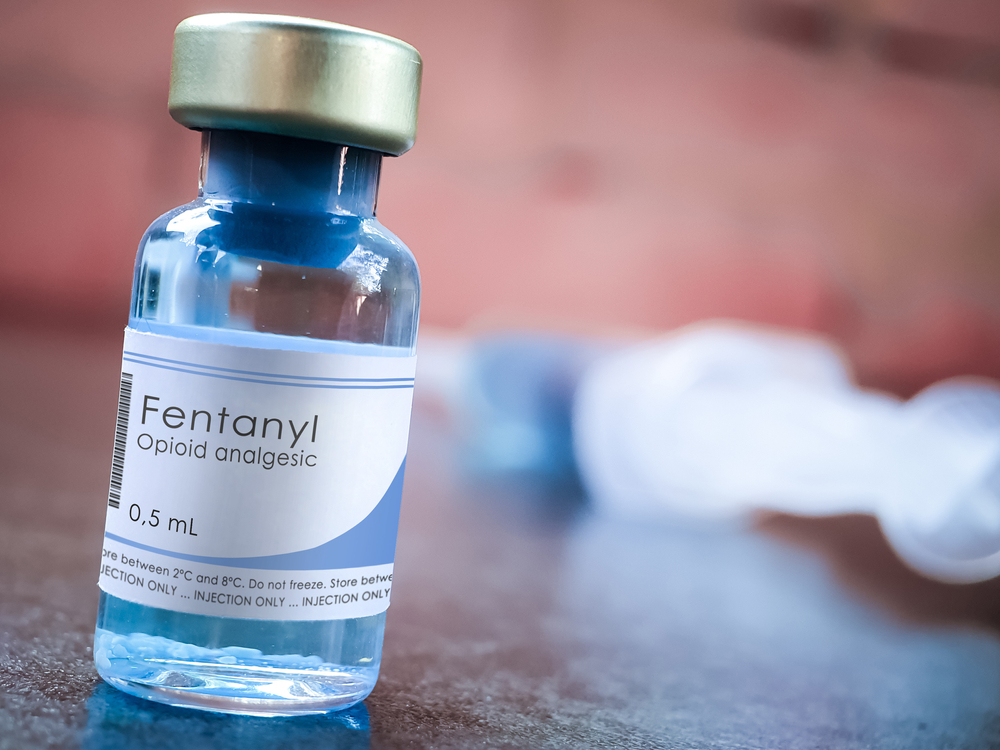5 Facts About Fentanyl Staying in Your System
Before asking ‘how long does fentanyl stay in your system?’ It is important to know the basics of this drug. Fentanyl, a prescription opioid frequently administered to manage extreme pain, has several legal medical uses. Because of its potency, fentanyl has been linked to overdose and death as part of the opioid crisis in the U.S. If you or a loved one is taking fentanyl, you may want to know how long its effects last and how long it remains in your system. You may avoid an overdose if you’re informed about the drug, its potency, and how long it stays in the body. It may also keep you and your family safe.
What is Fentanyl?
Fentanyl is a potent synthetic opioid prescribed for short-term and long-term pain. It is 50 times more powerful than heroin and 100 times more powerful than morphine. It takes longer for the body to process and eliminates fentanyl, a short-acting opioid, than other short-acting opioids. Fentanyl is the main contributor to drug overdose deaths, with illegal fentanyl manufacturing contributing to most of these fatalities. If someone takes a large dose of fentanyl while the body is processing a previous dose, the chances of overdosing are extremely high.
The number of overdose deaths from synthetic opioids skyrocketed in comparison to 2014, in which less than 10,000 people were killed. According to data from the Centers for Disease Control and Prevention (CDC), there were more than 28,000 deaths related to synthetic opioids in the United States in 2017. In 23 states and the District of Columbia, deaths caused by these substances rose significantly from 2016 to 2017, largely due to the production of illicit fentanyl.

How Does Fentanyl Make You Feel?
Fentanyl binds to and activates certain opioid receptors located in the brain that regulate pain and emotion. The drug also increases dopamine release from specific nerve cells in the brain’s reward center through these receptors. Because of this, fentanyl produces a reinforcing sense of calm and contentment. However, the drug may also slow respiration, which, given its potency, increases the threat of overdose. Users of fentanyl report feeling the following after using the drug:
- Relaxed
- Euphoric
- Relief from pain
- Sedated
- Confused
- Drowsy
Breathing difficulties are among the most significant risks associated with fentanyl. Your breathing may become slow or halt completely. It may also lead to brain damage by depriving the brain of oxygen. Other dangerous side effects of fentanyl include:
- Nausea
- Vomiting
- Anxiety
- Agitation
- Heart arrhythmia
- Chest pain
- Constipation
- Seizures
- Unconsciousness
Is Fentanyl Addictive?
Fentanyl is a highly addictive, dangerous drug with a high potential for overdoses. Because it is 50 times more potent than heroin and 100 times more potent than morphine, just one dose of fentanyl can instigate an urge to take more. When you stop using fentanyl, your body stops getting dopamine, resulting in the inability to release pleasure chemicals or to experience adequate pleasure. As a result, the amount of the drug or the period between doses may increase, or both. A substance use disorder related to fentanyl is likely to develop in individuals who repeatedly use the drug to maintain or boost their pleasure. Withdrawal symptoms are a strong indication of its addictive nature.
Fentanyl vs. Other Opioids
The strength of fentanyl is the most significant distinction between it and other opioids. Just 2 mg of fentanyl is enough to kill someone. It is therefore theoretically possible for 1 kilogram of the material to kill as many as 500,000 individuals. Individuals making and distributing illegal fentanyl may not measure or dose it appropriately. In spite of a range of counterfeit fentanyl pills, more than 40% of them contained lethal doses of the drug. Fentanyl quantities in counterfeit pills range from 0.02 mg to 5.1 mg.
Will Fentanyl Appear on a Drug Test?
Yes, fentanyl will appear on a drug screening if recently used. Drug testing can be ordered for a variety of reasons. Some employers require drug testing prior to hiring or throughout employment to monitor for substance abuse. Drug testing may also be required in situations such as legal disputes or car accidents where drug use must be confirmed. Doctors may drug test to ensure that their patients are receiving the appropriate dosage of their medications.
Furthermore, the United States is facing the issue of fentanyl being mixed with other drugs, including cocaine, MDMA, and counterfeit Percocet pills bought online. Even a small amount of fentanyl contained in these drugs is lethal and results in rising numbers of overdoses and casualties. Fentanyl test strips may be purchased to verify whether or not a drug contains any fentanyl.
How Long Does Fentanyl Stay in Your System?
Although the impact of fentanyl is felt for a few hours, the drug remains in the system much longer and can be detected on a drug test. Additionally, dose, length of use, weight, frequency of use, urine concentration, and impaired liver or kidney functioning can all affect detection time.

Urine, hair, and blood tests are used to detect fentanyl. Fentanyl may be detected on a urine test for 24–72 hours after the last time it was used, but norfentanyl, a byproduct created during fentanyl metabolism, may be detected for up to 96 hours. Hair tests may detect fentanyl for up to three months after the last time it was used. Blood tests can detect fentanyl immediately after use, but metabolites can be detected 5 to 48 hours afterward. Saliva tests are used to test for a range of drugs, although fentanyl and its metabolites cannot always be detected.
Fentanyl Detection in Urine
When someone takes fentanyl, two metabolites are detected in a drug screen. Fentanyl and its metabolites are detected in urine within two to three hours of taking the drug. They may continue to be detected on a urine screen for one to three days after consuming it just once.
Fentanyl Detection in Hair
Hair testing can be an effective method to determine prior fentanyl use and fentanyl analogs, as well as other synthetic opioids. The disadvantage of a fentanyl hair test is that it takes a few days to register the initial presence of fentanyl but afterward can detect its presence for as long as 90 days.
Fentanyl Detection in Blood
An individual who cannot be tested with a urine screen for fentanyl can have his or her blood tested. Because drug tests are considered to be invasive, blood tests are rarely used. Based on its half-life, IV fentanyl can be detected in a person’s blood for up to 20 hours, oral fentanyl for up to three days, and transdermal fentanyl (patch) for up to three and a half days.
Fentanyl Detection in Saliva
It is difficult to spot fentanyl in saliva samples, particularly if individuals consume it transdermally or intravenously. In a study of patients receiving fentanyl, no fentanyl or any of its metabolites were detected in saliva samples at 24 hours or beyond, hence this test is not employed for fentanyl detection.
What Happens if You Overdose on Fentanyl?
Fentanyl’s high potency makes it dangerous to combine with other substances, especially if the user believes it is another substance. The combination of fentanyl with alcohol and benzodiazepines (Xanax, Klonopin, Valium, for example) increases the risk of respiratory arrest and death due to overdose. Seek emergency medical assistance if you suspect an overdose.
It may be treated with naloxone, an opioid receptor blocker that reverses the outcome of opioids. Naloxone may be administered as an intravenous or intramuscular injection or as a nasal spray in certain locations. It is conceivable to keep naloxone at home if you are a regular opioid user and have an overdose. Naloxone is not self-administered during an overdose, so family members and loved ones should know how to use it in any form available.

Treatment for Fentanyl Addiction
There are treatment options if you or a loved one has problems with fentanyl use or opioid abuse. Treatment for fentanyl abuse is individualized and customized to each person’s needs. However, it typically includes the following:
Detox
Prior to undergoing a comprehensive treatment plan, medically managed detoxification is often the first step. Your body is guided by a medical professional to safely eliminate fentanyl while experiencing physical and emotional withdrawal symptoms.
Inpatient Rehab
An inpatient treatment facility provides 24/7 care. You must move into a hospital or residential treatment facility for the duration of treatment, which includes group and individual therapy, education, behavior modification, and medication if necessary. By residing in the treatment center, you are able to remove the pressures of home or work and instead concentrate on rehabilitation in a supportive environment.
Outpatient Rehab
During outpatient treatment, you attend onsite (or virtual) therapy sessions and therapies, which appear similar to or identical to inpatient care, but you then return home or to a sober living environment.
Aftercare
Aftercare, also known as continuing care, sets up you for lifelong recovery by providing community support and accountability after you finish a formal treatment program and may include mutual-help groups and/or sober living environments.
End Your Addiction to Fentanyl Today With Oasis Recovery
It’s critical to seek professional help if you or a loved one is misusing or addicted to fentanyl. Through our patient-focused rehabilitation approach, Oasis Recovery Center provides individualized care. An extensive medical and clinical evaluation is conducted when a client first enters our program in order to create custom treatment plans that address each individual’s unique wants and needs.
Addiction is not easy to beat, but it is not impossible. With the help of the professional team at Oasis Recovery, you or your loved one can achieve an addiction-free life. Contact us today to begin your journey to recovery. We look forward to hearing from you.









